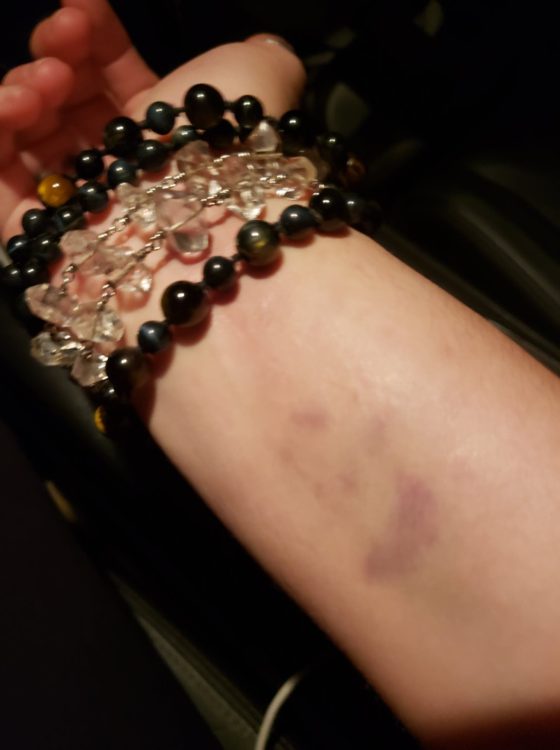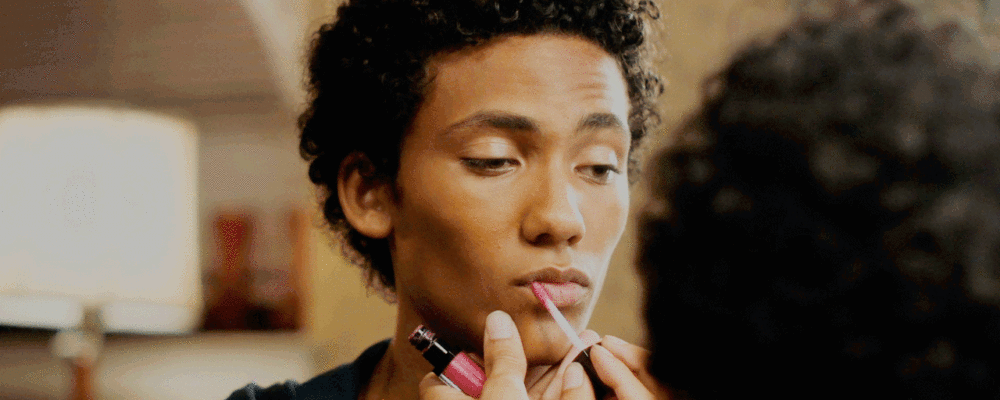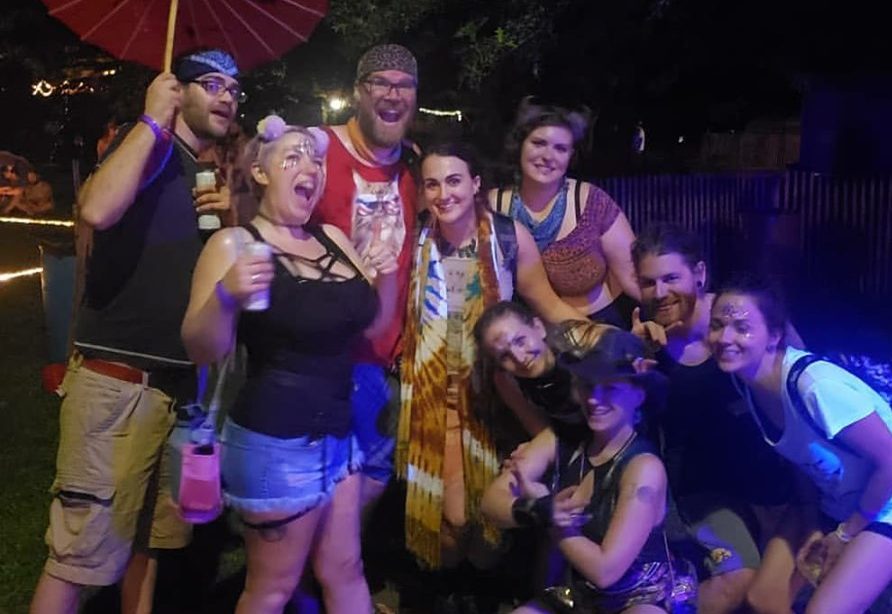IOWA CITY — Fall is “Hawkeye season” for many of us, a fun time for many Iowans to celebrate football and the University of Iowa.
But while the fans roar at Kinnick Stadium, my brain has become conditioned to go somewhere else. This time of year starts me thinking, “OK, when did the game start? How long have people been drinking? Which school are we playing?”
This time of year, I begin to worry almost constantly about inebriated, hyped-up people, right outside my downtown place of work, before, during, after or in between ball games. How I’ll be thrown right into it the moment I step outside of the shop where I’ve just put in a long day of work. And what alarming calls, gestures, and even touches I might experience.
The fall atmosphere in Iowa is a partying atmosphere. It’s a force that calls people to come visit the great Hawkeye nation — but it also means swimming in a sea of black and Goldschlager.
It’s about more than partying students. A relationship between alumni and new students begins with the extravagant tailgates of the football season, when the older crowd supplies the booze early morning to well after the game. I recently witnessed a Mom, Dad, daughter and boyfriend discuss their party plans for the day, all four of them talking openly about “Lyfting” from tailgate to tailgate.
Growing up in an alcoholic household, these same kinds of questions would pop up when I was a child. When I saw my father’s Pontiac in the driveway, I’d go on high alert. “When did he get home? Is he going to be angry? How long has he been drinking?”
And then, I’d start walking on eggshells. There were so many times when a joke here or there, or the wrong move, would erupt in an anger that I was not allowed to ignore as a child. I’ve recently awoken to the reality that growing up and now living in Iowa City, I have been walking on eggshells for decades. And now, with this column as part of my transformation, I’m ready to stop.
A little background, for those of you who don’t already know this: here in Iowa City, you are exposed to “university life” before you’re old enough to drive, and whether or not you attend university. In high school, I’d take the bus downtown with my friends. As “ped-rats,” we perceived ourselves to be adults out there, and we conducted ourselves as though we could handle it all.
But it was under this illusion that my strongest impressions of Iowa City began to take shape. While hanging downtown, getting adults to buy us liquor and cigarettes, I started dating a kid two years my senior. My alcoholic family didn’t show much affection, so I was elated to have this Freddy Prinze-like person in my world, cuddling me.
Within the first six months, he started leaving bruises up and down my body. “I don’t know my own strength,” he’d say. Though our first intimate time together was consensual, the good times quickly became few and far between. Intimacy became about forcing my head down, grabbing or violating my body, or using words like “you know you want it.”
By the time I got out of that situation a year later, I was programmed that all of this was ok, I now realize. A year after we parted, I was reminded of this when my first abuser approached me at a Halloween party. We had one more violent encounter, with him pushing me, screaming, “Get out,” and being corralled by my friends like an animal.
My exposure to what I now call Iowa City’s assault culture continued during drunken nights in my friends’ parents’ basements. During one of these nights, a peer grabbed my hand and put it on his erect penis.
And on the second day of my senior year of high school, I was raped. It was during a trip to visit a friend at Kirkwood Community College, when a friend of a friend approached me then cornered me.
He held his leg on the counter of my friend’s apartment, corralling me tucked away in the kitchen. Out of sight of my friends, who were laughing in a nearby haze-filled room, he wrapped his arms around me from behind and led me to his room.
Just wanting the whole thing to be over, I followed from in front, and once in his room, he forced himself inside of me. He crashed what few boundaries I’d been able to develop in early childhood, before growing up in an alcoholic household weakened them. To this day, I still remember him getting a condom, how the room seemed to be lit red, and the pain and emptiness I felt.
Then came the difficult reactions from my “friends” and family. My best friend at the time responded by saying, “Why’d you let that happen?” One family member said, “I wish you wouldn’t put yourself in those situations.”
But what about the time another friend of another boyfriend violated me during a party, while I was sleeping off a buzz in the same bed where I usually felt safe? Who then accused me publicly of “looking for him,” trying to portray me as a classic harlot? I felt betrayed by both of those men: one for allowing his bandmate to visit me when I was drunk, and the other for yet again crashing through my boundaries.
Just over a month ago, during a home game weekend, I felt besieged anew by Iowa City’s assault culture. First, I walked outside of my downtown place of work to the sound of aggressive catcalls about my “tits.”
A few hours later, encountering friends on the street, a longtime male acquaintance kissed me without asking my permission. I learned later he’d also violated another woman’s boundaries at another event.
Yet another grenade hit me the very next night. Again, I was at a bar. These places leave me wary, especially at closing time when we’re all asked to step outside and the sheep are left with the wolves.
But, I stepped out to have a smoke, with a man I’d previously known. He was married, and like me was bisexual, so I didn’t second guess my decision. Yet within a moment, he growled, “Come here,” grabbed my body, and smashed his face onto mine. I knew he was drunk, so I tried to balance between making it clear I was not interested, and trying not to “freak him out.”
He kept going. We both lost our footing and slammed to the ground, which gave me a chance to “escape” back into the bar. As I prepared to tell my bartender friend what just happened, the old feelings of “what if he doesn’t believe me?” washed over me.
My knees have panged every day since then. The hands I use to make my art and living bore painful cuts for weeks. They have been reminding me that yet another person had crashed into my private world, and let me down.
A few weeks ago, the final straw came and drove me to write this column. My rapist from years ago reappeared, approaching me outside of a bar in Des Moines. I didn’t realize who he was at first, as he casually brought up details of Kirkwood and our mutual friend. I realized, he seemed to feel unaware of my years of suffering. Did our mutual “friends” not hold him accountable for his actions? Probably, I realized, piecing together how he’d been invited back to Iowa City since that terrible experience years ago, and I was left to endure spending being in the same room with him.
Finally, I’ve had it. I now see that most of what I learned as a teenager and young adult is bullshit. Trauma and the assault culture is real, and it is glorified here in Iowa City and many university towns as some sort of norm to the party vibe. Through the dirty language used at workplaces. Through the freedom men feel to make sexual advances during business dealings.
The uproar of hurt and pain from the marching bands involved in the recent clash between the University of Iowa and Iowa State University hints at it, from a different angle. Some band members reported sexual assault and physical injuries. A recent article about sexual assaults at Ohio State and Michigan State, and how that tension seemed to spill over into football, also hints at this assault culture.
But this isn’t just a college-aged problem in these college towns. It’s not merely about kids and new drinkers experimenting. We’re all at risk when new students and drunk alumni hit the city.
The heavy use of alcohol leaves many people “voiceless” and unable to stand up or make decisions that lead to safe outcomes for everyone. Alcohol is used as an excuse. “We don’t know what we’re doing because we’re drunk” is something I’m so tired of hearing.
As a community, it’s time we acknowledge the real damage being done, and address these behaviors head on and without fear.
• We can start with language and recognizing that catcalling is a form of rape culture.
• Choosing not to laugh at jokes that are offensive in social situations is another step we can take, along with choosing not to use words associated with rape, racism or sexism.
• Before you even hug someone, let alone kiss them, ask their permission first. Whether young, old, rainbow, or invisible.
• The ways people respond to sexual assault in the years after it happens may be confusing to friends and family. There is no perfect way to grieve, and the waves of emotion come on in ways not even the victim understands, for years. Here are some tips to comfort someone who has been assaulted:
• Give the victim time to rebuild life in their own time. It might take longer than you think it should.
• Do not criticize the victim for what happened. Victims are already feeling guilt and confusion during this time.
• Offer information on community services and comfortable situations to socialize. Keep trying, listen to what they want instead of what you want them to be ready for.
• Do some introspection on how we as a community could have prevented this or rape culture that may come to life in our own perceptions.
• Listen.
• Make sure health care continues by going to check-ups together, and talking about consent-language with medical staff during annual exams.
• Support taking control over every decision in their life.
• Travel in pairs when going to social situations.
• Always lightly check-in with how someone is feeling.
• Have a plan for an out, or offer one for your friend if you sense something is “wrong.” For example, “Hey, did I show you this awesome print over here?”
Most importantly, stop blaming the alcohol. It’s not the alcohol’s fault; it’s the person’s fault. Recognize when someone’s drunk at a party and touching someone in a way they don’t want to be touched. Realize it’s a real, live person in front of you doing wrong to another real, live person.
In the wake of 40 years of community service from the Domestic Violence and Intervention Program in Iowa City, I’m asking that we townies start living what we want to see in this community. The more we come forth with an active desire for everyone to be safe out there, especially in the late hours, the easier it will be to teach the newcomers to Iowa City what is not tolerated.
I encourage everyone to participate in the Rape Victim Advocacy Program’s bystander advocacy training on how to safely intervene. Contact them to provide a training where you live and work. Learn how to keep yourself safe in situations, and learn what you can do when it’s time for you to intervene to help keep someone else safe.
It took me a lot to write this, finally. Thank you for listening, finally.







